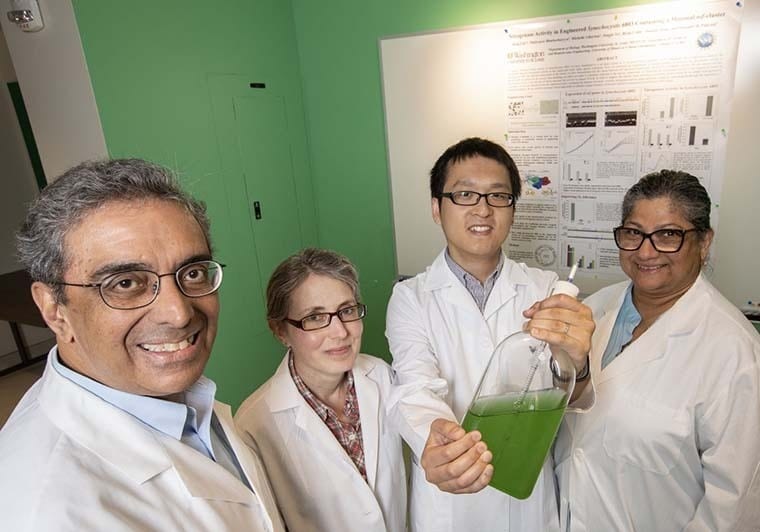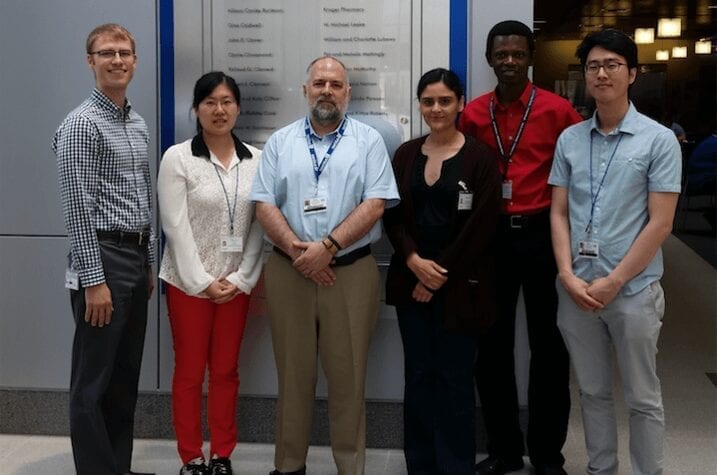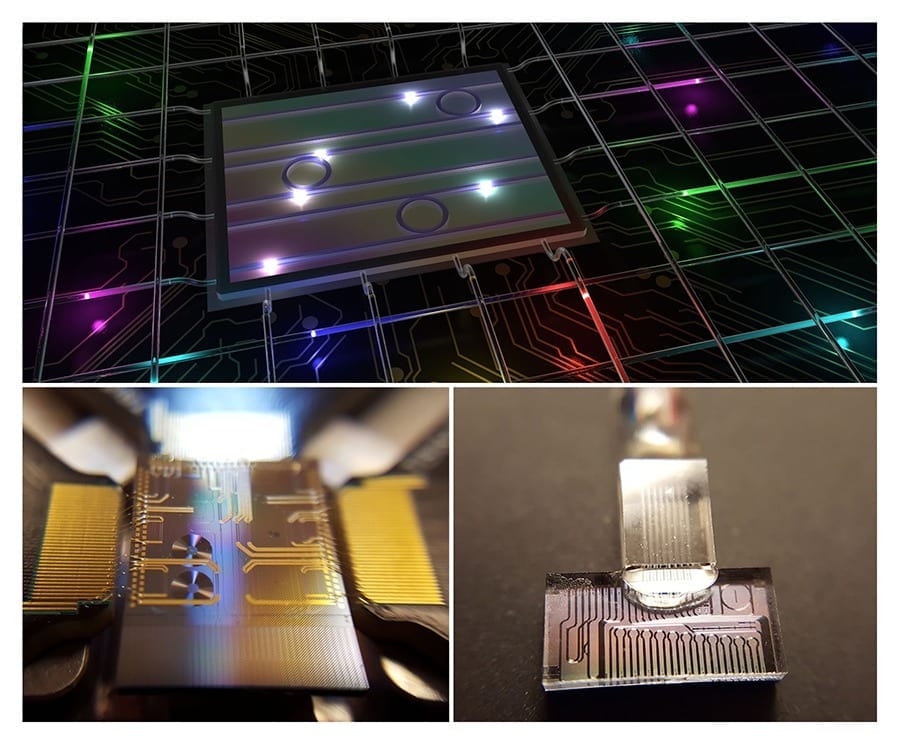
Potential for regenerative medicine and cancer research earns doctoral student Ido Sagi a Kaye Innovation Award
Stem cell research holds huge potential for medicine and human health. In particular, human embryonic stem cells (ESCs), with their ability to turn into any cell in the human body, are essential to the future prevention and treatment of disease.
One set or two? Diploid versus haploid cells
Most of the cells in our body are diploid, which means they carry two sets of chromosomes — one from each parent. Until now, scientists have only succeeded in creating haploid embryonic stem cells — which contain a single set of chromosomes — in non-human mammals such as mice, rats and monkeys. However, scientists have long sought to isolate and replicate these haploid ESCs in humans, which would allow them to work with one set of human chromosomes as opposed to a mixture from both parents.
This milestone was finally reached when Ido Sagi, working as a PhD student at the Hebrew University of Jerusalem’s Azrieli Center for Stem Cells and Genetic Research, led research that yielded the first successful isolation and maintenance of haploid embryonic stem cells in humans. Unlike in mice, these haploid stem cells were able to differentiate into many other cell types, such as brain, heart and pancreas, while retaining a single set of chromosomes.
With Prof. Nissim Benvenisty, Director of the Azrieli Center, Sagi showed that this new human stem cell type will play an important role in human genetic and medical research. It will aid our understanding of human development – for example, why we reproduce sexually instead of from a single parent. It will make genetic screening easier and more precise, by allowing the examination of single sets of chromosomes. And it is already enabling the study of resistance to chemotherapy drugs, with implications for cancer therapy.
Diagnostic kits for personalized medicine
Based on this research, Yissum, the Technology Transfer arm of the Hebrew University, launched the company New Stem, which is developing a diagnostic kit for predicting resistance to chemotherapy treatments. By amassing a broad library of human pluripotent stem cells with different mutations and genetic makeups, NewStem plans to develop diagnostic kits for personalized medication and future therapeutic and reproductive products.
Learn more: First ‘haploid’ human stem cells could change the face of medical research; earn Kaye Innovation Award
The Latest on: Haploid embryonic stem cells
[google_news title=”” keyword=”haploid embryonic stem cells” num_posts=”10″ blurb_length=”0″ show_thumb=”left”]- Unlocking the mechanisms of pluripotent cell's fate determinationon April 29, 2024 at 6:21 pm
As embryos, all complex organisms are partially made up of pluripotent stem cells, a term for cells that have the capacity to differentiate into any kind of cell: nerve cells, muscle cells, blood ...
- Stem Cells Newson April 27, 2024 at 5:00 pm
Apr. 22, 2024 — Physical cues in the womb, and not just genetics, influence the normal development of neural crest cells, the embryonic stem cells that form facial features, finds a new ...
- Pluripotent stem cells articles from across Nature Portfolioon April 19, 2024 at 4:59 pm
Embryonic stem cells and induced pluripotent stem cells are pluripotent stem cells. Here the authors develop a method to quantify all combinations of 5-methylcytosine (5mC) and 5 ...
- Stem cell researchon October 11, 2022 at 3:49 am
Stem cell research is still a new field within biology. Many big advances, like the discovery of human embryonic and tissue stem cells, have been made only during the past 25 years. Thanks to stem ...
- Embryonic stem cellson October 11, 2022 at 3:49 am
Embryonic stem cells (ESCs or ES cells) are cells from the early embryonic development, from which all cells and organs of an individual descend. Embryonic stem cells are pluripotent, meaning that ...
- Haploid Human Embryonic Stem Cells (IMAGE)on May 26, 2022 at 5:04 am
This photo shows haploid human embryonic stem cells created at the Hebrew University's Azrieli Center for Stem Cells and Genetic Research. Disclaimer: AAAS and EurekAlert! are not responsible for ...
- Guidelines for Human Embryonic Stem Cell Researchon March 28, 2020 at 8:00 am
In 2005, the National Academies released the book, Guidelines for Human Embryonic Stem Cell Research, which offered a common set of ethical standards for a field that, due to the absence of ...
- Producing offspring of same-sex parentson October 17, 2018 at 5:00 pm
We have made several findings in the past by combining reproduction and regeneration, so we tried to find out whether more normal mice with two female parents, or even mice with two male parents, ...
- stem cellson January 27, 2015 at 6:49 am
He appeared in court on charges he siphoned up to $50… Major Embryonic Stem Cell Advance Raises Ethical Quandaries Researchers at Oregon Health and Science University have achieved a longtime goal.
- Obama to reverse embryonic stem cell banon March 5, 2009 at 4:00 pm
WASHINGTON (CNN)-- President Obama is planning to sign an executive order Monday to overturn Bush-era policy that limited federal tax dollars for embryonic stem cell research, according to ...
via Google News and Bing News










